Institutionalization of Ghanaian Indigenous Games: Reviving Culture Through Sports
Introduction
Indigenous games are a vital part of Ghana’s cultural heritage, embodying the values, traditions, and essence of communities across the nation. Games like ampe, pilolo, oware, chaskele, and many others are more than mere pastimes—they represent social cohesion, cultural identity, and physical activity. However, the legacy of colonialism has pushed these games to the periphery, replaced by Western sports that dominate Ghana’s educational curriculum and national policies.
Today, Ghanaian indigenous games are at risk of fading into obscurity, seen as relics of rural life with little relevance in modern society. The challenge lies in addressing this misrepresentation and unlocking their immense potential in cultural preservation, education, and socio-economic development.
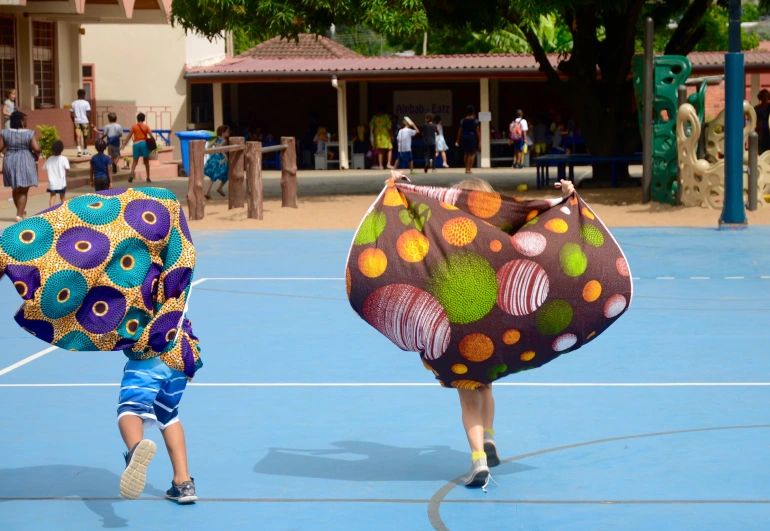
The Concept
SportDrive champions the institutionalization of Ghanaian indigenous games as a public policy and competitive sport. By formalizing these games, we aim to preserve their cultural essence while positioning them as tools for education, health, community bonding, and global recognition.
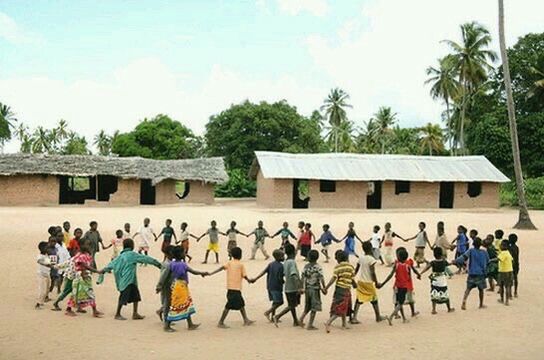
The Vision
Our goal is to reintroduce indigenous games into the mainstream as a recognized and structured part of Ghana’s sporting ecosystem. This involves integrating them into school curriculums, hosting tournaments, and creating standardized rules for competitive play. Through this initiative, we seek to highlight their physical, cognitive, and socio-economic benefits, while promoting them as a national treasure.
Why Indigenous Games Matter
- Cultural Significance
Indigenous games act as a “cultural thread,” connecting generations and fostering a sense of identity and belonging. They teach core societal values, document ethnic histories, and serve as a bridge between ancestral practices and modern life. - Health Benefits
Games like ampe and pilolo are excellent for promoting physical and mental well-being. They improve motor fitness, agility, balance, and cardiovascular health, while also enhancing cognitive skills like problem-solving, concentration, and strategy. - Social and Economic Impact
Indigenous games strengthen community bonds, particularly in rural areas, where they often serve as a primary form of recreation. When institutionalized, they can generate economic opportunities through local tournaments, merchandising, and even international competitions.
The Process of Institutionalization
SportDrive has developed a step-by-step framework to formalize indigenous games and promote their adoption:
- Research and Documentation
Mapping and documenting Ghanaian indigenous games, including their cultural origins, rules, and techniques. Examples include ampe, oware, chaskele, and regional favorites like zo-dangtaa and akatavui. - Standardization and Rule Development
Creating a standardized structure and rulebook to enable competitive play while preserving cultural authenticity. - Integration into Education
Incorporating indigenous games into Physical Education curriculums, emphasizing their benefits for health, cognitive development, and cultural appreciation. - Community Tournaments and Talent Identification
Organizing school and community tournaments to promote mass participation, foster talent development, and rekindle public interest. - Promotion and Public Policy Advocacy
Collaborating with stakeholders, including the Ministry of Youth and Sports, Ghana Education Service, and international organizations, to elevate indigenous games to a national and global platform. - Global Outreach
Expanding the games’ reach across Africa through regional tournaments and eventually promoting them in international events like the Commonwealth Games and the Olympics.
Achievements So Far
Since 2017, SportDrive has been actively piloting the institutionalization of indigenous games in collaboration with the University of Ghana’s Department of Physical Education and Sports Studies. Together, we have engaged schools in the Central and Greater Accra regions, introducing games like ampe and pilolo to students and teachers. In 2020, SportDrive represented Ghana at an international coaching camp in New Delhi, India, to study frameworks for developing indigenous sports.
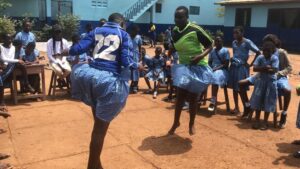

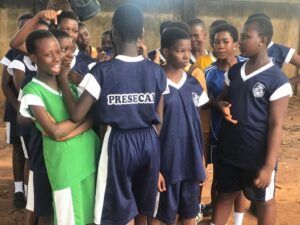

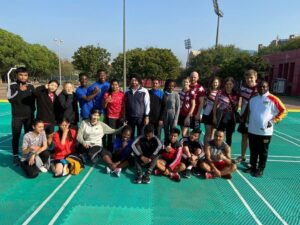
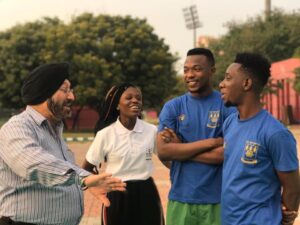
Challenges
Despite our progress, challenges remain. Limited funding, lack of formal approval from authorities, and logistical barriers hinder our efforts to scale these initiatives. Schools often require endorsement letters from the Ghana Education Service or the Ministry of Youth and Sports, which delays access to students and resources.
The Way Forward
SportDrive seeks the support of stakeholders to address these challenges and push for indigenous games’ recognition in national and global sports policies. By promoting these games as low-cost, high-impact alternatives to elite sports, we aim to create a sustainable sporting model that celebrates Ghana’s heritage while fostering economic growth and community empowerment.
Conclusion
Ghana’s indigenous games are more than just recreational activities; they are a testament to the country’s cultural ingenuity and resilience. Institutionalizing them is not just about sports—it is about reclaiming a part of our identity, empowering communities, and creating a new narrative for Ghanaian sports on the world stage. Let us unite to give our games the platform they deserve.
Join the Movement
Be a part of the journey to preserve and promote Ghanaian indigenous games. Connect with SportDrive today to learn more or support our initiatives!

